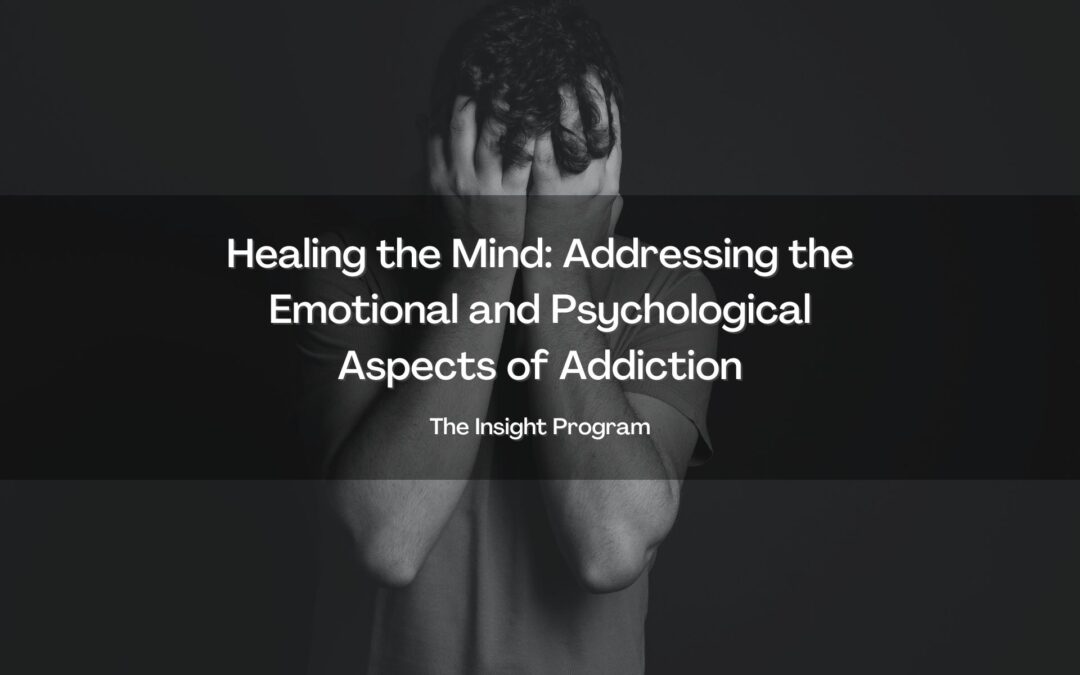Addiction is a complex and often misunderstood condition that affects millions of people worldwide. While physical dependence on a substance is a key component of addiction, it’s crucial to recognize that addiction also has profound emotional and psychological aspects. In this blog, we’ll delve into these aspects and explore how addressing them is a crucial part of the recovery process.
Understanding Addiction
Addiction isn’t just about craving a substance; it’s a chronic disease that alters the brain’s structure and function. It affects the brain’s reward system, making it difficult for individuals to control their cravings and impulses. However, the emotional and psychological dimensions of addiction often play a significant role in perpetuating the cycle of substance abuse.
Emotional Triggers
Many people turn to drugs or alcohol as a way to cope with emotional pain or stress. For some, it’s a way to numb difficult feelings, while for others, it provides temporary relief from anxiety, depression, or trauma. These emotional triggers are often deeply rooted and can fuel addiction over time.
Psychological Patterns
Addiction often involves psychological patterns and behaviors that keep individuals trapped in a cycle of substance abuse. This might include denial, rationalization, and avoidance of facing the consequences of their actions. Breaking these patterns is a crucial step toward recovery.
Co-occurring Mental Health Issues
It’s common for addiction to co-occur with mental health issues such as depression, anxiety, or post-traumatic stress disorder (PTSD). These conditions can both contribute to and result from addiction. Treating addiction must also address these underlying mental health concerns to achieve lasting recovery.
Treatment Approaches
Addressing the emotional and psychological aspects of addiction requires a holistic approach to treatment. Here are some key components:
- Counseling and Therapy: Individual and group therapy sessions can help individuals explore the emotional triggers and psychological patterns that drive addiction. Cognitive-behavioral therapy (CBT) and dialectical-behavior therapy (DBT) are effective approaches in this regard.
- Support Networks: Building a strong support network of friends, family, and support groups can provide emotional stability and encouragement throughout recovery.
- Medication-Assisted Treatment (MAT): MAT can help individuals manage cravings and withdrawal symptoms, enabling them to focus on addressing the emotional and psychological aspects of addiction.
- Education: Learning about the science of addiction and its impact on the brain can empower individuals to make informed decisions and understand the importance of addressing the psychological dimension.
- Mindfulness and Stress Management: Techniques like mindfulness meditation can help individuals develop healthier coping mechanisms and manage emotional triggers.
Addiction is a multifaceted condition that extends beyond physical dependence. Addressing the emotional and psychological aspects of addiction is a critical component of effective treatment. It requires a combination of therapy, support, education, and self-awareness. By recognizing and working on these dimensions, individuals can embark on a journey of healing that leads to lasting recovery and improved mental well-being. Remember, seeking help is a sign of strength, and with the right support, recovery is possible.

